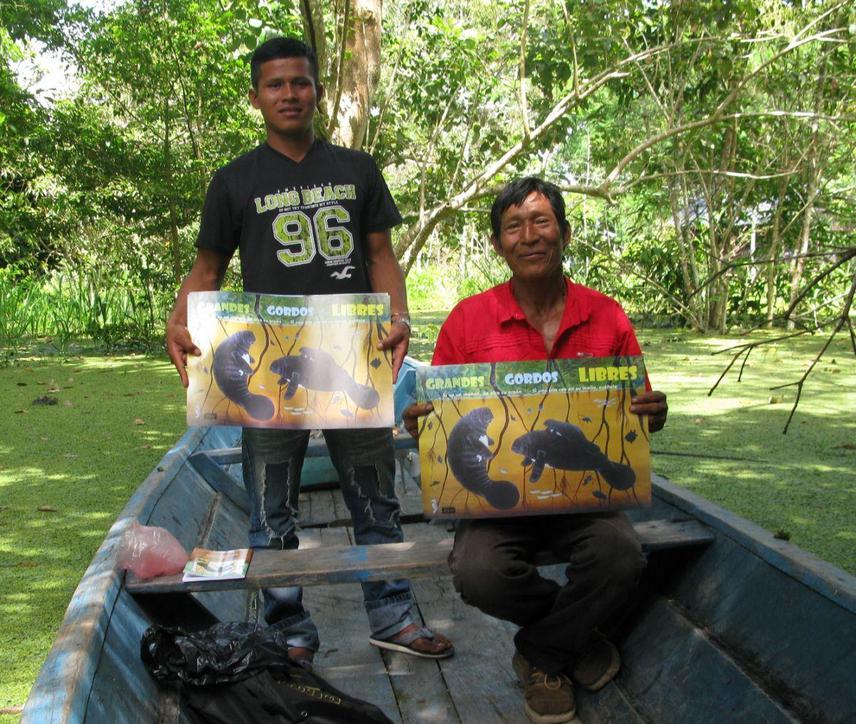Sarita Kendall
Other projects
The project aims to extend the protection of ten key aquatic species and their habitat through community monitoring, education and management by 20 indigenous fishermen and educators.

Fisherman with information posters.
In 2005 the Natütama Foundation created an Interpretation Centre which received over 6500 visitors in 2012 and has become a focus for community-based conservation and education for the aquatic world. Apart from overall habitat loss, there are specific threats to aquatic species from over-fishing, hunting, climate change, tourism and changing cultural values. Taking into account local and international criteria, we are protecting threatened wildlife species (including manatees, dolphins, turtles, herons, sloths, fish, boas) through continuous monitoring, conservation actions and awareness building, reaching over 20 indigenous communities.
The wildlife monitoring programme brings immediate and long term benefits: apart from protecting key species, the effects of observing their habitat on a weekly basis, of taking measures, seeing results and talking about what is happening in the community help to change attitudes, with greater acceptance of the need for conservation measures. Our work will provide better guidelines for focusing conservation efforts on places and times where the threats are greatest. Combining this annual timetable with education campaigns, communities will be able to organise more effective protection and management for key species.
Our education programme aims to strengthen commitment to conservation in the community as a whole through 3 high profile events during the year (Natutama Week, Turtle Carnival and Climate-related theatre on the Municipal anniversary); to mould young people’s behaviour and strengthen respect for the environment by fostering concrete actions (e.g. releasing captive turtles, collecting rubbish) through regular meetings of 5 voluntary junior ecology groups in 3 communities in the Puerto Narino area; and by working towards a culture for conservation in the school and pre-school population (including teachers), integrating scientific and local knowledge in environmental education for over 500 children through the year. In addition, we shall be diffusing conservation values and information through the Natutama Interpretation Centre with visits guided by Ticuna Indians for over 5000 people, including local communities, Colombian schools and other visitors.